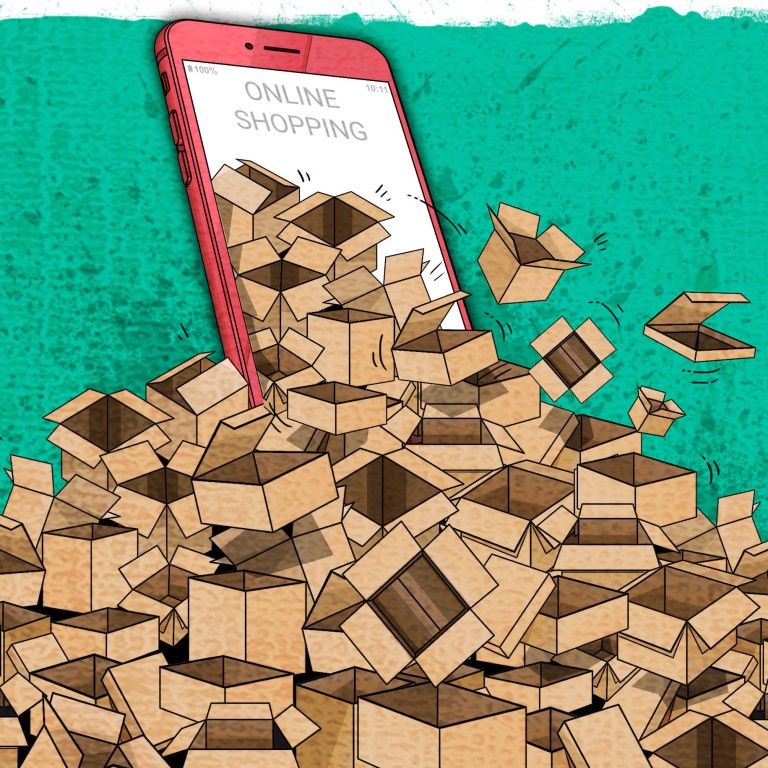
China’s carbon neutral goal: Cainiao, JD.com and online retailers say all that mountain of plastics and packaging have to go
- As many as 67.1 billion packages were dispatched in 2020 in China’s online shopping industry, about 80 per cent of all parcels delivered around the country, according to an estimate by the State Post Bureau
- That number could balloon to 127.5 billion by 2025, leaving a carbon footprint equivalent to 116 million tons, or 1.1 per cent of China’s total emissions of greenhouse gases that year
Outside a residential compound in the Longhua district in southern China’s technology metropolis Shenzhen, home to some of the country’s most advanced companies, a quiet revolution is unfolding.
“A lot of boxes we collect are good for reuse, but we don’t need that many,” said the recycling station’s manager Wu Hui during a recent interview with South China Morning Post. “The rest go to the garbage collector, as do the wrappers, plastic foam, and plastic bags.”
As many as 67.1 billion packages of all sizes and shapes were dispatched in 2020 in China’s online shopping industry, about 80 per cent of all parcels delivered around the country, according to an estimate by the State Post Bureau. That number could balloon to a staggering 127.5 billion by 2025, leaving a carbon footprint equivalent to 116 million tons, or 1.1 per cent of China’s total emissions of greenhouse gases that year, according to a projection by CarbonStop, a Beijing-based consultancy.
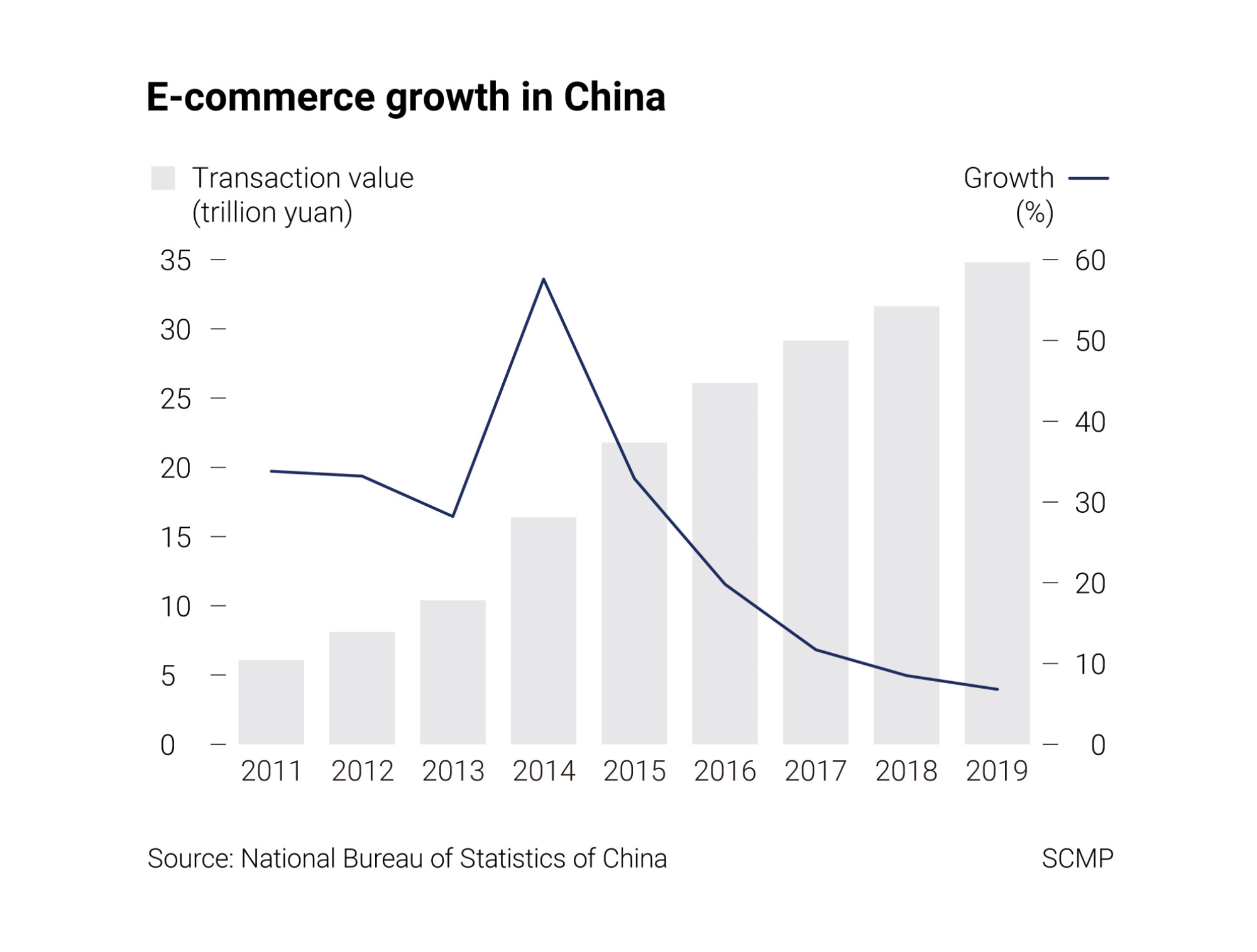
“The carbon neutral and emission-peaking goals are solemn promises China has made to the world,” Xi said according to the Xinhua report. “They will bring about broad and profound economic and social reforms and they will not be achieved easily.”
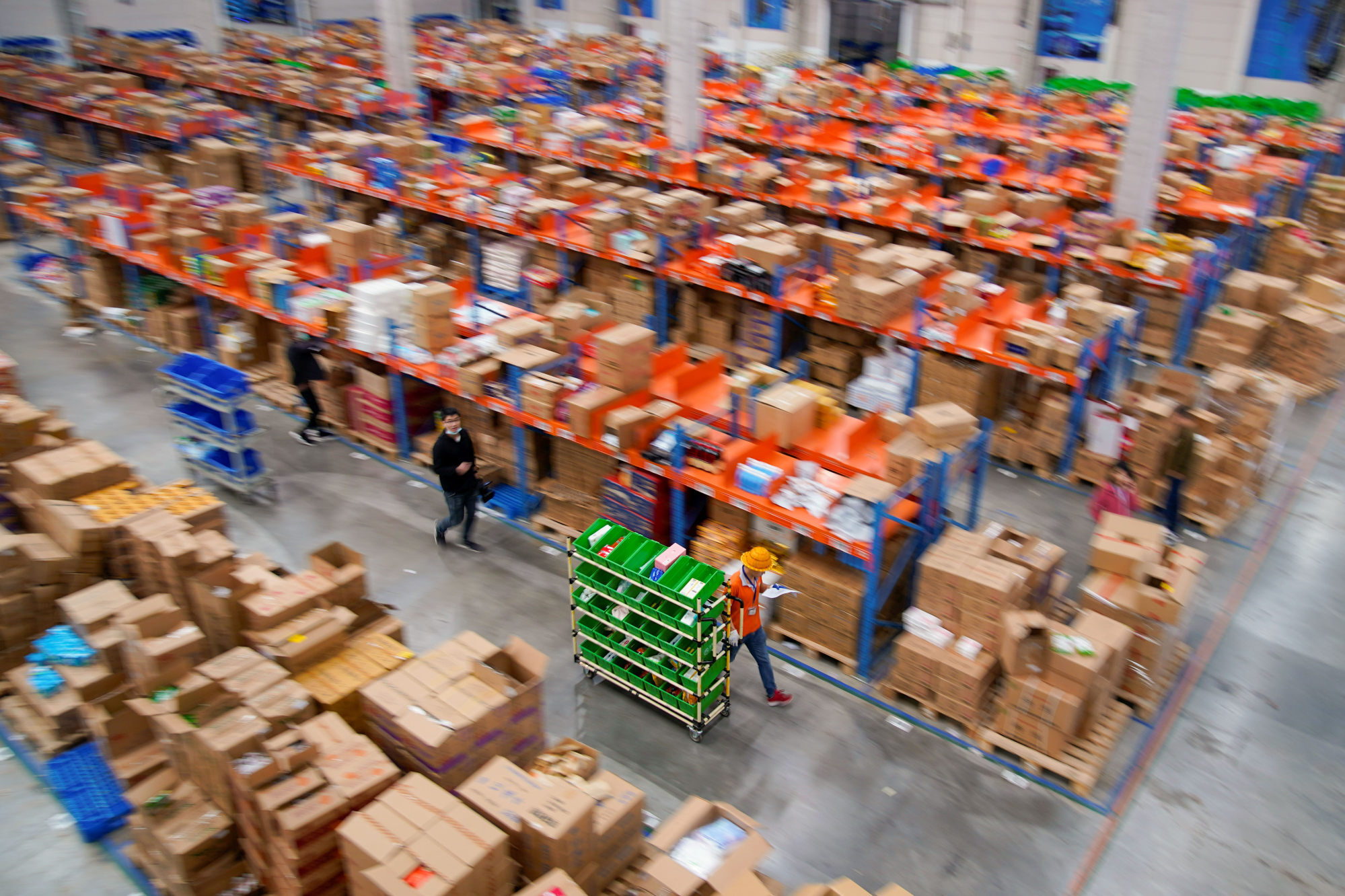
As many as 120 million cartons have been reused, according to Cainiao Green Initiatives’ director Wang Haosu, but a lot more could be done if Cainiao’s programme can be expanded to go beyond meeting its own needs.
China’s online retail industry, the world’s largest, is one of the key sectors identified by regulators to be subjected to a timetable to come up with more sustainable packaging solutions. This covers emissions arising from delivery of the packages, production of packaging materials, and e-commerce transactions’ data storage and processing. Alibaba owns this newspaper.
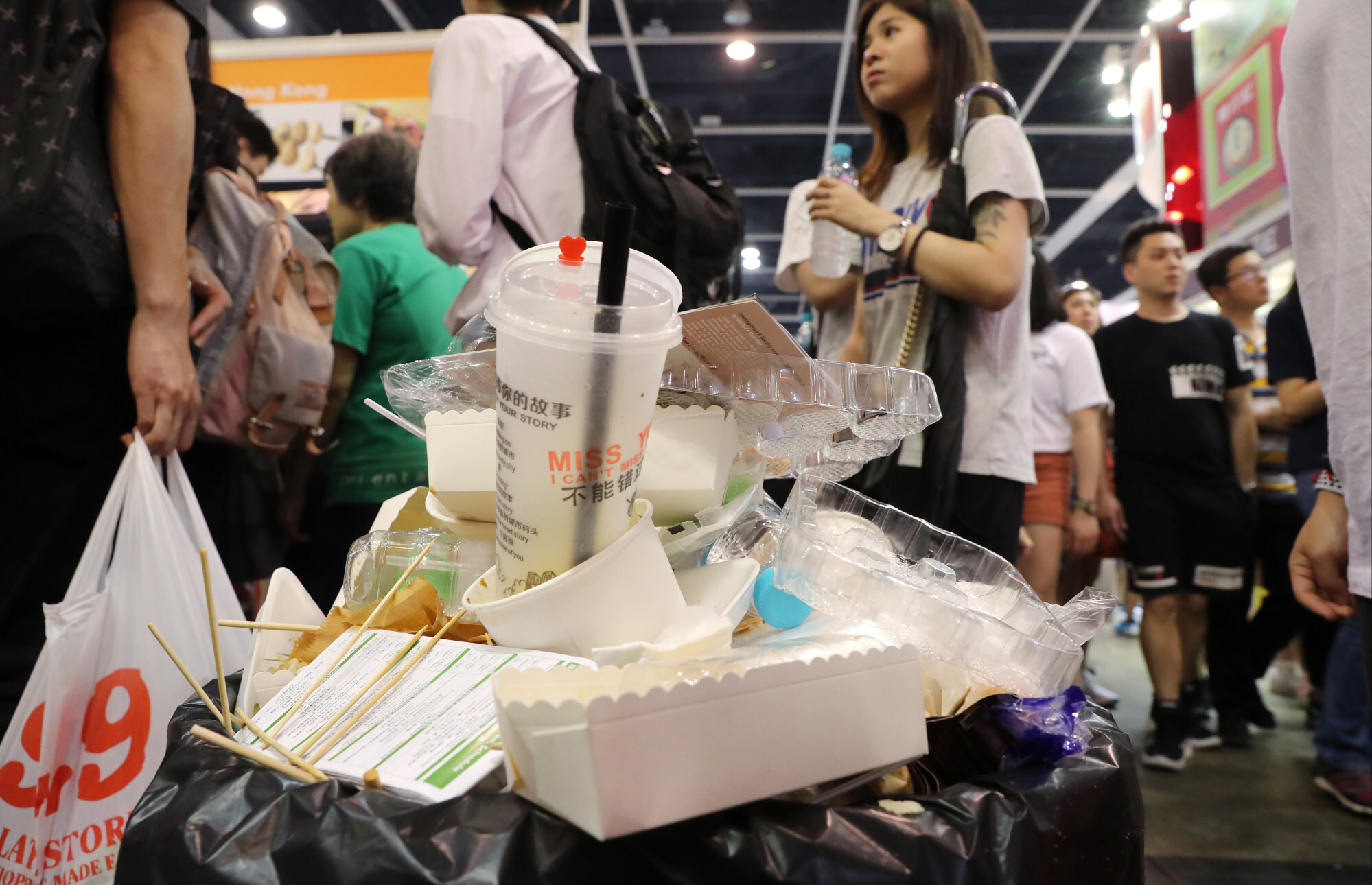
Amazon, the world’s largest e-commerce retailer outside China, has drawn the ire of consumer and environmental groups for packing items in oversized outer cartons, and for switching from cardboard to plastic for shipping smaller items.
“Amazon’s embrace of plastic packaging is highly problematic because it increases plastic use, plastic waste, and pollution,” said Canada-based advocacy group Oceana in a December report. “Most municipal recycling programmes in the US, Canada and the UK do not accept plastic film.”
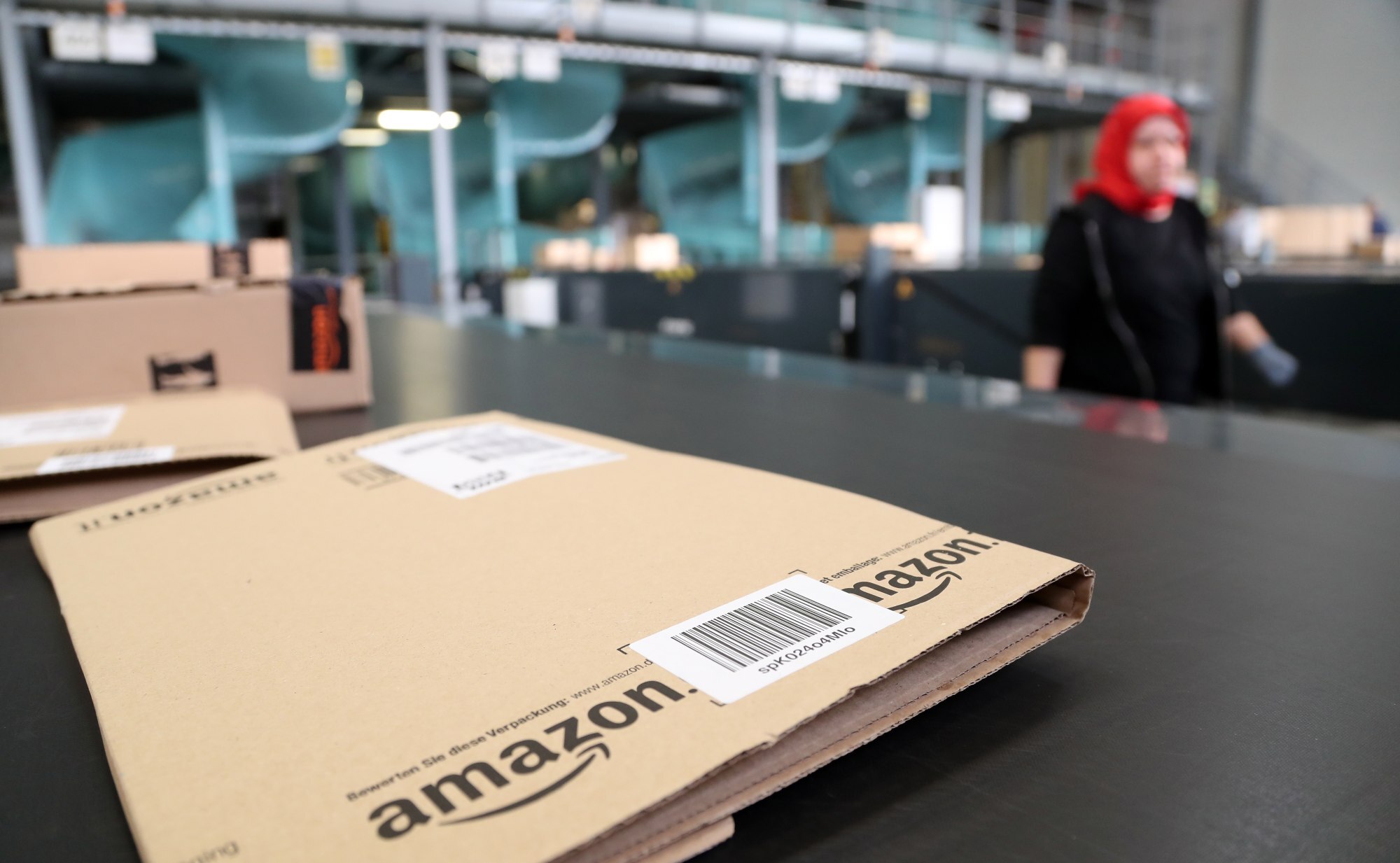
The padded plastic envelopes it introduced in 2019 for deliveries are “kerbside recyclable” in some cities and in designated store drop-off locations, Amazon said, adding that it has also launched plastic film recycling at over 55 of its fulfilment centres and aims to recycle 8,500 tonnes of the material annually.
However, a survey by PollFish, appointed by Oceana, of some 600 Amazon customers in the US in May last year found that just 1.7 per cent had made special trips to bring their plastic packaging to designated grocery stores for recycling.
“We are working to eliminate or reduce packaging waste, and increasing recycling, including access to it,” Amazon’s spokesperson told the Post in a statement. “We are moving to packaging material options that are fully compatible either in the paper or plastic recycling streams.”
By encouraging manufacturers to pack their products, ready-to-ship, it has reduced the weight of outbound packaging by a third, and over 900,000 tonnes of packaging material since 2015, Amazon said in its latest sustainability report.
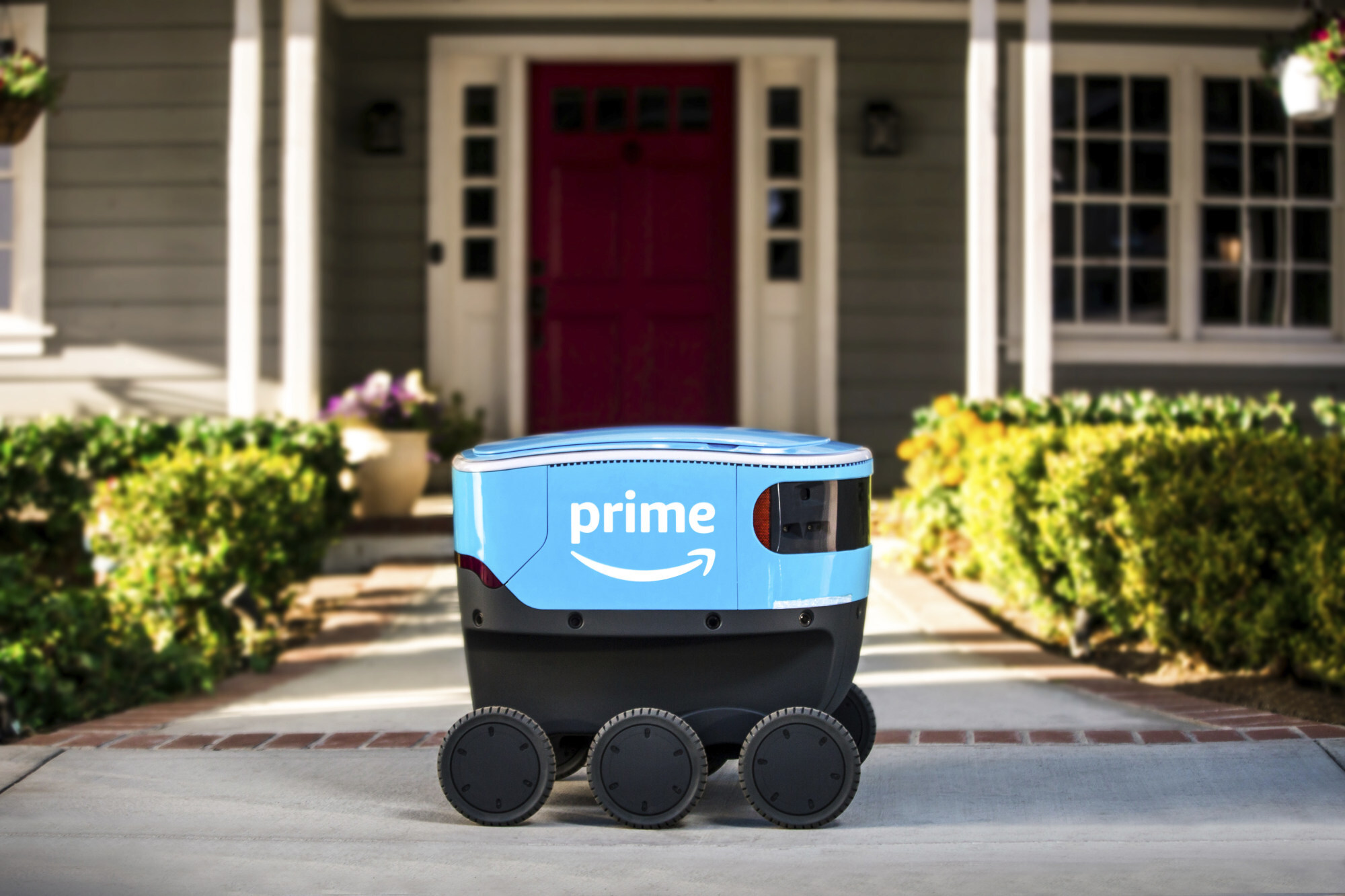
Chinese companies have already made progress on reducing packaging, with the first step being phasing out single-use plastics.
Lenovo, the world’s largest personal computer vendor, has completely cut out the need to use plastic tape on the specially designed packaging boxes of its ThinkPad laptop. By gradually shifting to plastic tape-free packaging for the rest of its products, it aims to phase out the 19,500 kilometres of plastic tapes weighing 54 tonnes it used to consume each year.
A separate effort to replace paper waybills – documents carrying details of a shipment – with a digital version in 2014 has since saved some 430 billion pieces of paper and 21.5 billion yuan in costs, Cainiao said. The company has also been using algorithms to calculate the total size of more than 800 million packages, succeeding in reducing the 530 milllion of them, the company said.
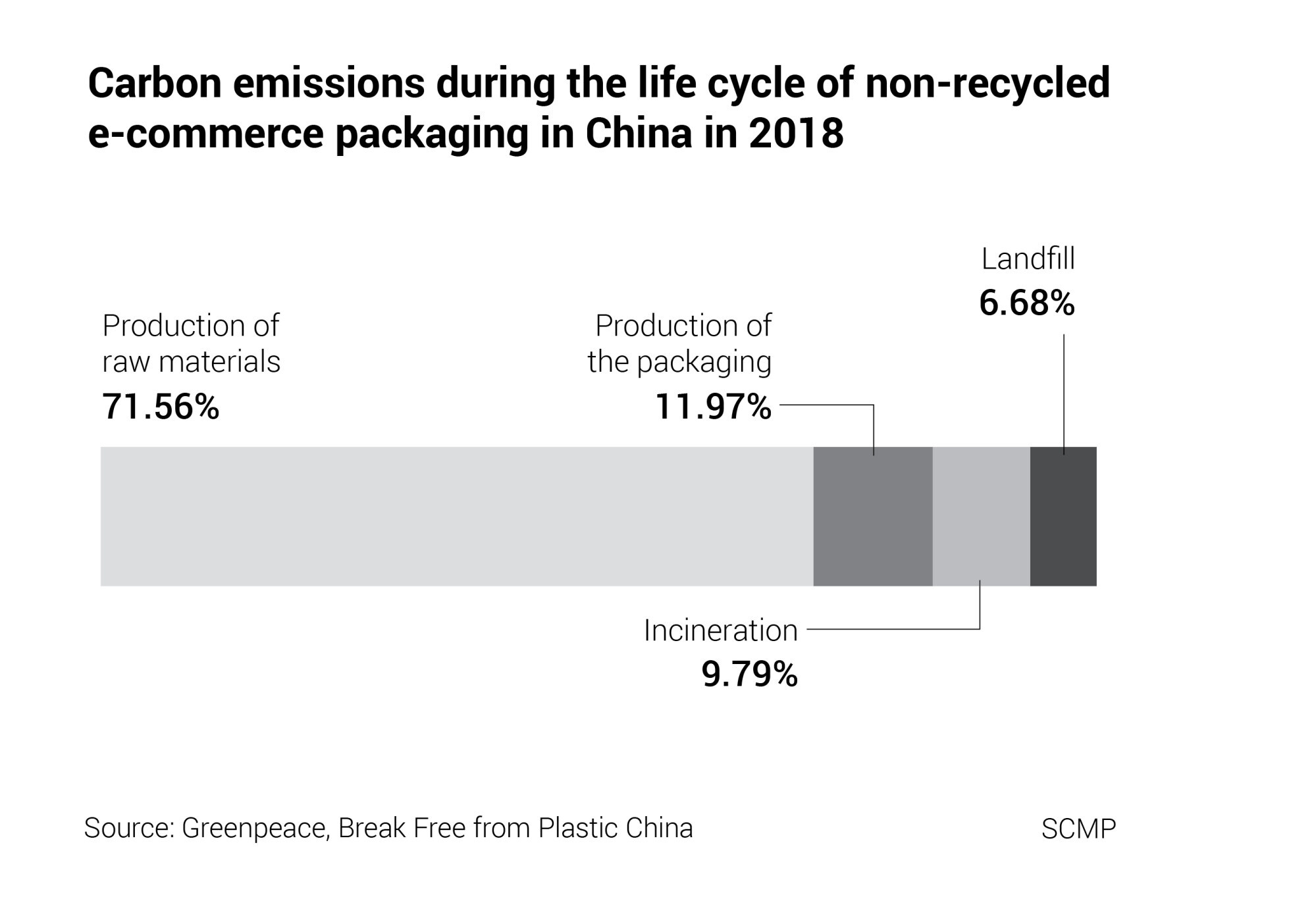
China’s government has called for the deployment of at least 10 million reusable packaging boxes in China by 2025, according to a policy document issued in November.
JD.com aims to deploy 1.5 million recyclable boxes by the end of this year, said Duan Yanjian, head of the Green Stream Initiative, its largest environmental project.
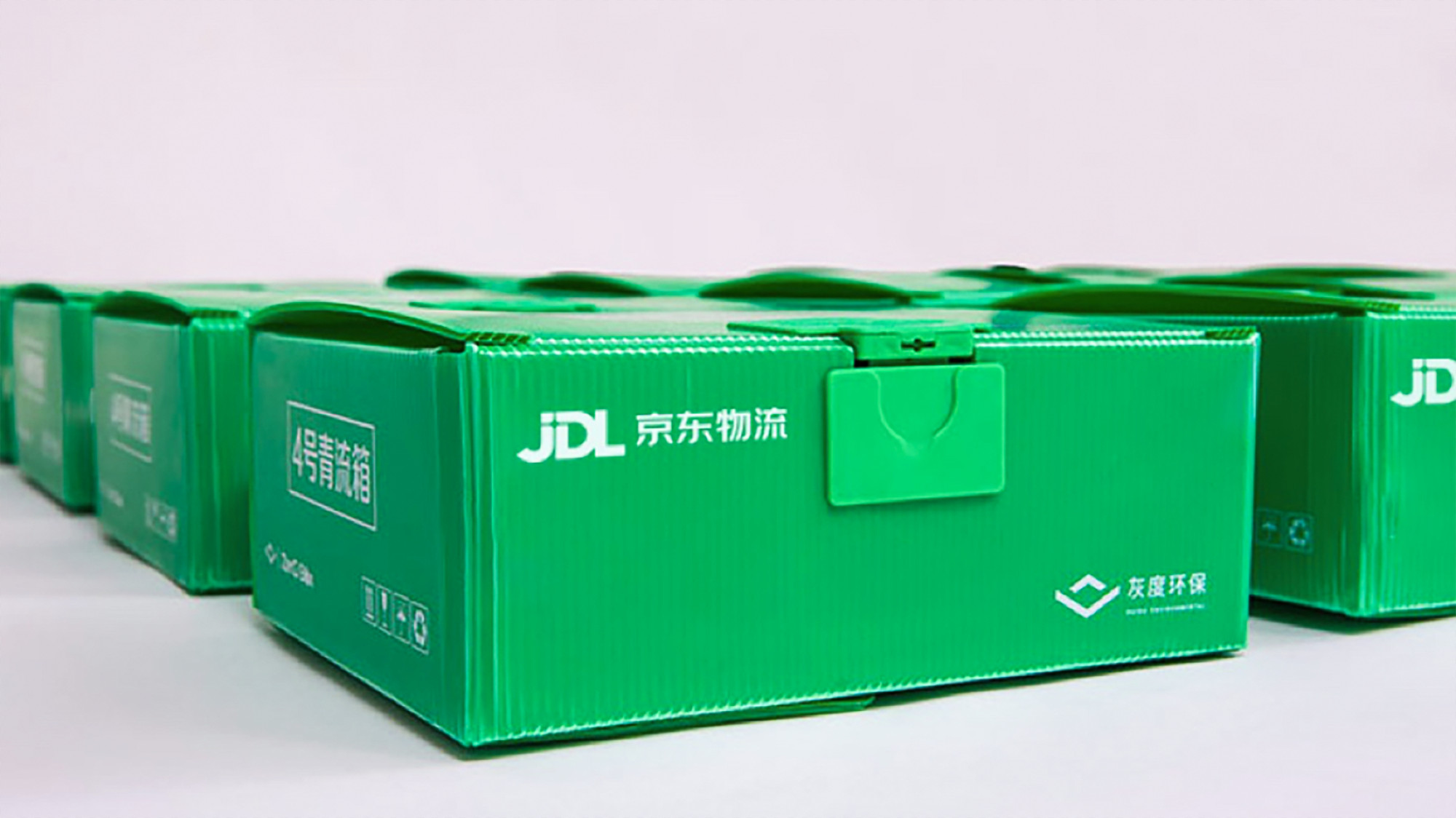
Despite the multipronged effort, corporate efforts amount to a fraction of the total increase in e-commerce packaging used each year.
“With annual express delivery volume growing at over 25 per cent, the measures we are seeing are far from [enough in] controlling the growth of packaging waste, not to mention to solving the problem,” said Tang Damin, a plastics campaigner at Greenpeace East Asia. “We also have no credible figure on the volume of carton boxes recycled.”
Switching to biodegradable plastics is also an incomplete solution, since these substances typically need certain conditions such as high temperature and humidity for complete decomposition to happen.
Even replacement of plastics with cartons is not a panacea, as they are linked to deforestation and their production also generates emissions. Only around 5 per cent of cartons are being reused at least once, said Zheng Xue, executive director of advocacy group Plastic Free China.
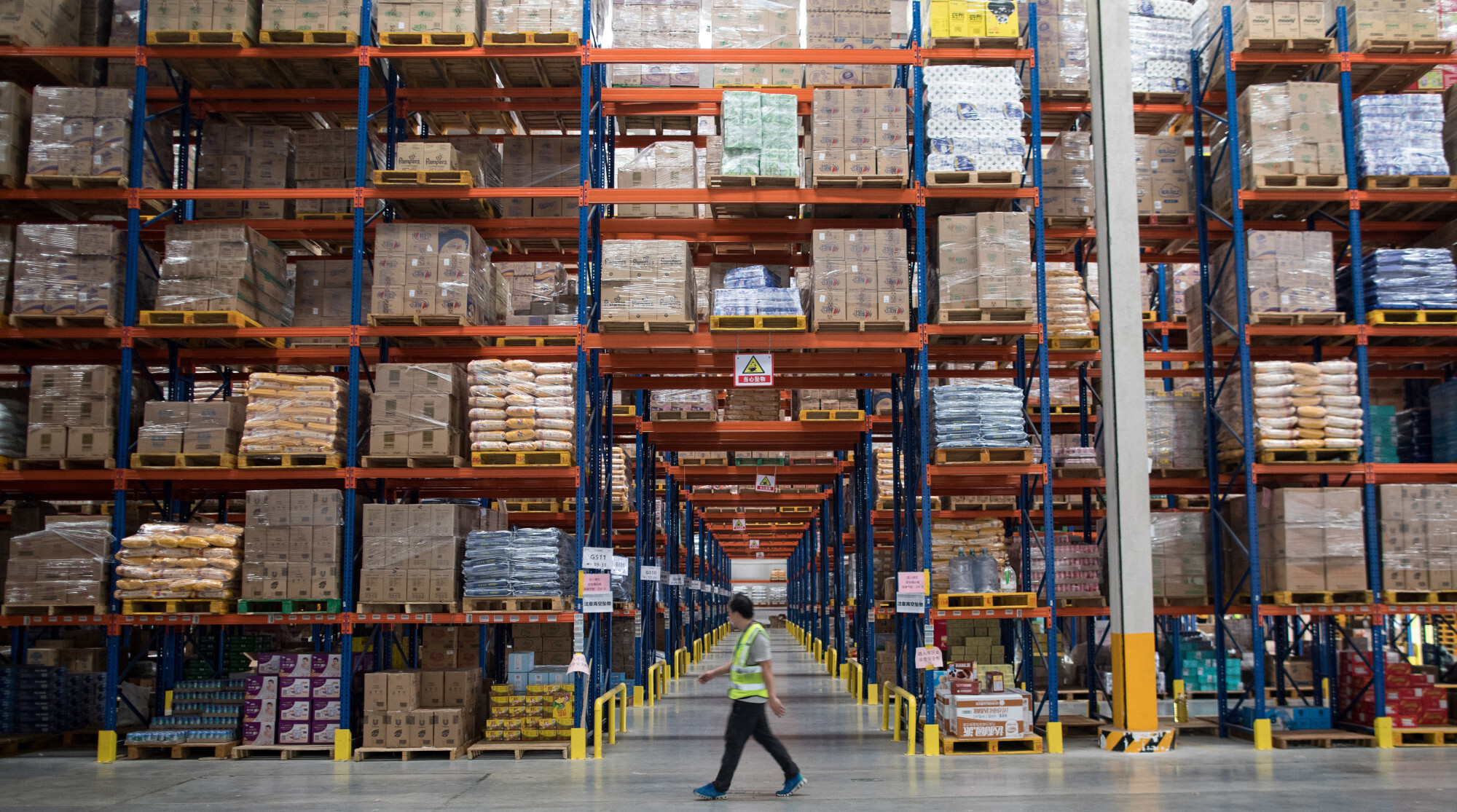
Of all the various solutions, reusable packaging is probably the most promising, according to JD.com’s Duan.The Beijing-based company has partnered with three-year-old Huidu Environmental, while Cainiao is working with start-up Yiside to design and deliver reusable packaging boxes.
“Demand for green packaging has been increasing both for cost efficiency and sustainability considerations,” said Anna Chai, president of Huidu Environmental.
The rental cost of reusable boxes is 15 per cent to 30 per cent lower than buying paper cartons, Chai said. Interest in reusable packaging from online fresh grocery retailers and group bulk-buying platforms has been particularly strong this year, she noted.
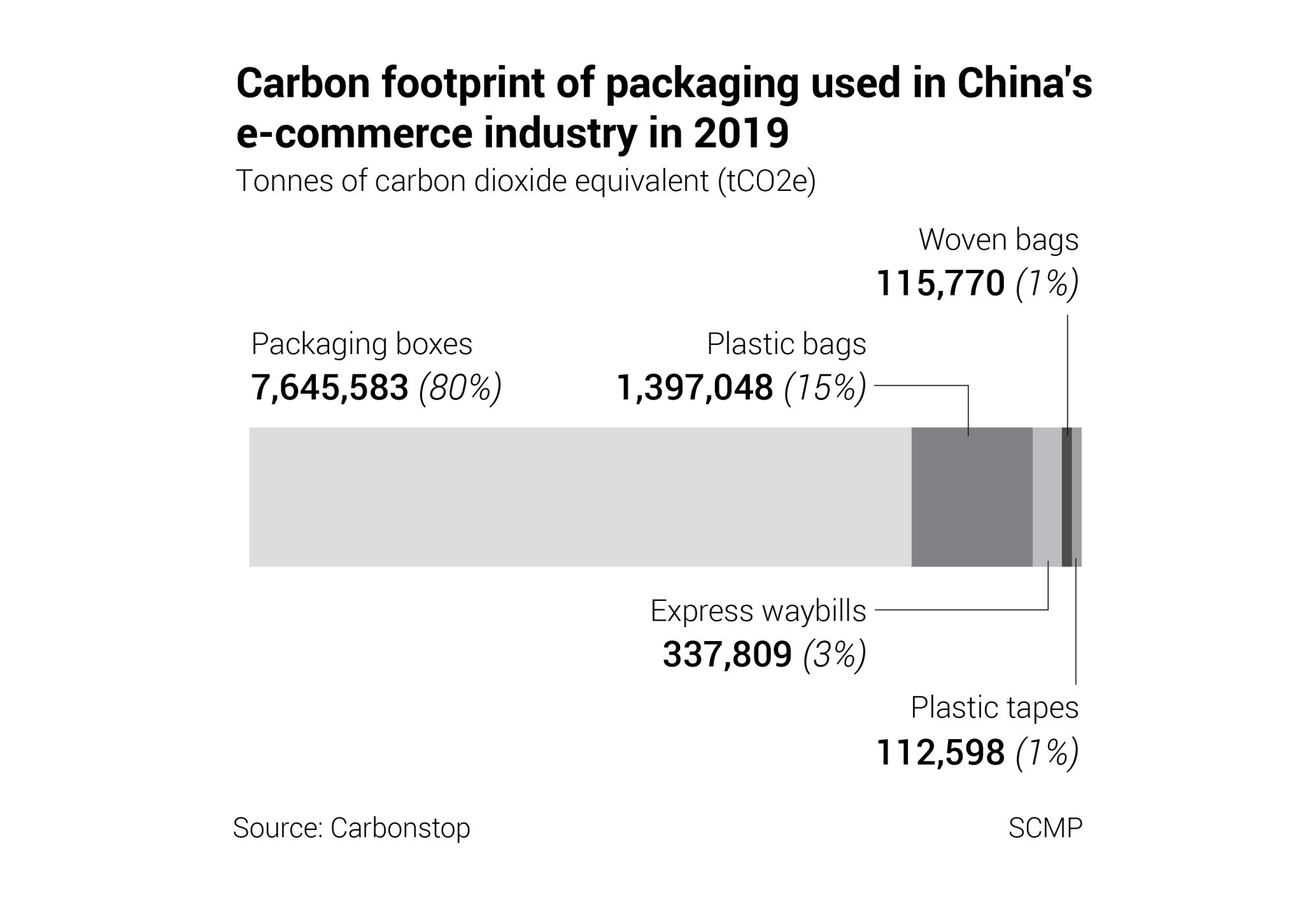
Huidu uses polypropylene plastic, a widely-used material that’s easy to recycle, for making delivery boxes that can be used at least 15 times. Huidu has made over three million reusable boxes available for rent in the market via e-commerce platforms run by Taobao, Tmall, JD.com and Suning.com, besides delivery companies such as China Post and YTO Express. Chai expects Huidu’s business to quadruple next year.
Still, acceptance of the leasing model by users will take time to build, and a major challenge lies in the collection of used containers, according to Liu Huanran, partner and vice-president at Yiside, which sells zip boxes and reusable boxes to Cainiao.
Governments and businesses should cooperate to pilot and promote reusable packaging models such as shared express delivery boxes, according to Plastic Free China’s Zheng.
“These models have high initial investment costs and require systematic changes in the logistics infrastructure, as well as the establishment of industry standards,” said Zheng.
Companies are already experimenting. Yiside sells reusable boxes directly to brand owners and e-commerce platforms, while Huidu rents its boxes and offers recycling services. Clients, including family-run shops, only need to input the address and number of the reusable boxes in a Huidu mini-programme embedded in popular social media app WeChat.
Huidu’s staff are expected to pick them up within 48 hours. Leveraging its own logistics network and delivery team, JD.com is also studying the feasibility of a sharing model similar to that of shared bikes, said Duan.
“We hope there will be a proper system for reusable boxes,” he said. “Everyone can apply to use available boxes around them. “Then we can realise fast turnaround of the boxes.”



